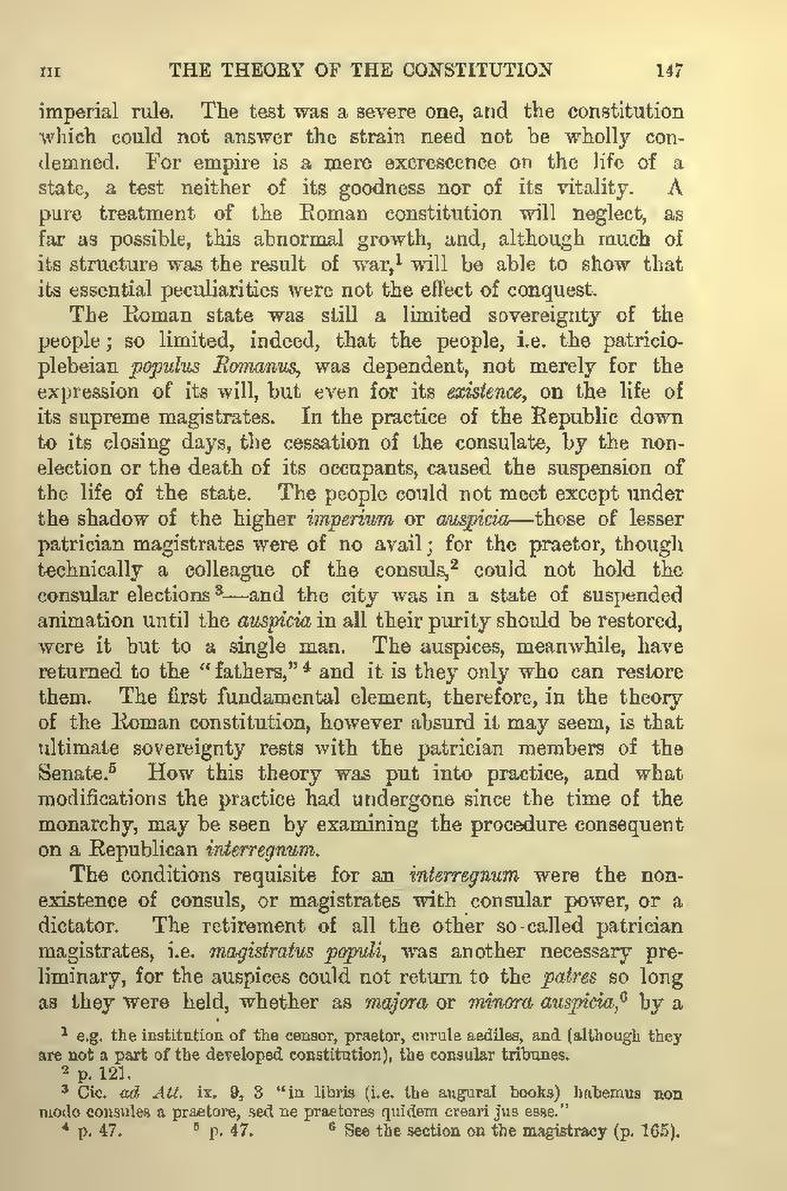imperial rule. The test was a severe one, and the constitution which could not answer the strain need not be wholly condemned. For empire is a mere excrescence on the life of a state, a test neither of its goodness nor of its vitality. A pure treatment of the Roman constitution will neglect, as far as possible, this abnormal growth, and, although much of its structure was the result of war,[1] will be able to show that its essential peculiarities were not the effect of conquest.
The Roman state was still a limited sovereignty of the people; so limited, indeed, that the people, i.e. the patricio-plebeian populus Romanus, was dependent, not merely for the expression of its will, but even for its existence, on the life of its supreme magistrates. In the practice of the Republic down to its closing days, the cessation of the consulate, by the non-election or the death of its occupants, caused the suspension of the life of the state. The people could not meet except under the shadow of the higher imperium or auspicia—those of lesser patrician magistrates were of no avail; for the praetor, though technically a colleague of the consuls,[2] could not hold the consular elections[3]—and the city was in a state of suspended animation until the auspicia in all their purity should be restored, were it but to a single man. The auspices, meanwhile, have returned to the "fathers,"[4] and it is they only who can restore them. The first fundamental element, therefore, in the theory of the Roman constitution, however absurd it may seem, is that ultimate sovereignty rests with the patrician members of the Senate.[5] How this theory was put into practice, and what modifications the practice had undergone since the time of the monarchy, may be seen by examining the procedure consequent on a Republican interregnum.
The conditions requisite for an interregnum were the non-existence of consuls, or magistrates with consular power, or a dictator. The retirement of all the other so-called patrician magistrates, i.e. magistratus populi, was another necessary preliminary, for the auspices could not return to the patres so long as they were held, whether as majora or minora auspicia,[6] by a
- ↑ e.g. the institution of the censor, praetor, curule aediles, and (although they are not a part of the developed constitution), the consular tribunes.
- ↑ p. 121.
- ↑ Cic. ad Att. ix. 9, 3 "in libris (i.e. the augural books) habemus non modo consules a praetore, sed ne praetores quidem creari jus esse."
- ↑ p. 47.
- ↑ p. 47.
- ↑ See the section on the magistracy (p. 165).
